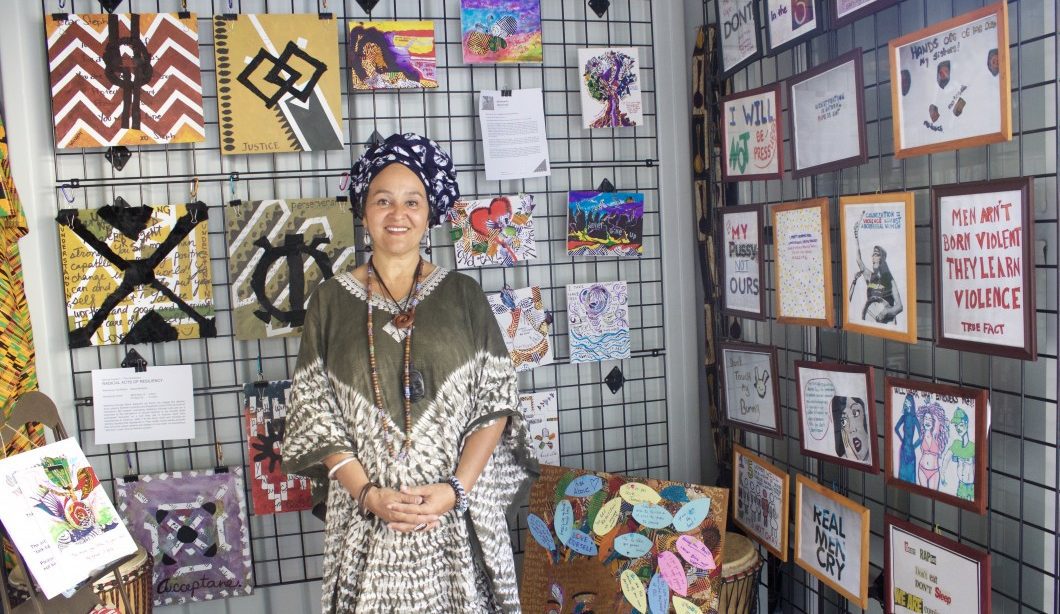The display, Sexual Assault: The Roadshow, is on the move after a week at Nathan Phillips Square. The popup art exhibit will spend the following weeks at OCAD University and Ryerson University before it shuts down for the winter.
The exhibit is the result of a collaboration between a sexual activist, identified only as Doe, who piloted a similar project last summer, and Lillian Allen, the artistic director with the financial assistance of the Ontario Arts Council.
Doe, whose name is under a publication ban, was sexually assaulted by the “balcony rapist” Paul Callow and successfully sued police for not informing the public of his previous attacks.
However, she insists her art isn’t meant to focus on the survival of those who have been sexually assaulted. She wants to change the language that which people use to talk about sexual assault.
“We’re upside-down with sexual assault. We focus on trauma, [being] broken and needing help all the time, like we can never be a full women anymore,” she says.
She’s against words like “victim” and “survivor” and wants to change the way people handle sexual assault. She worked with young women and men who designed the kind of rape warnings they would like to see posted publicly and displayed them in the exhibit. Some drawings referenced Pussy Riot and included a different perspective of Sleeping Beauty’s treatment.
“Imagine you were walking down the street and you saw one of those in the store,” Doe says. “You would look at it and register sexual assault differently.”
The gallery includes art from workshops conducted by Mosa McNeilly and Apanaki Temitayo Minerve who use African themes to empower those who may have experienced sexual assault.
“We want to shift the narrative and disrupt those ideas about the victim — our work looks at resiliency rather than trauma,” McNeilly says. “We have to concentrate on nurturing ourself and self-love, especially for black women because there’s so much stacked against us.”
The gallery will travel throughout 15 cities in the next three years once it resumes in May 2017. Doe hopes to host a larger event with more artists’ contributions in the future.

